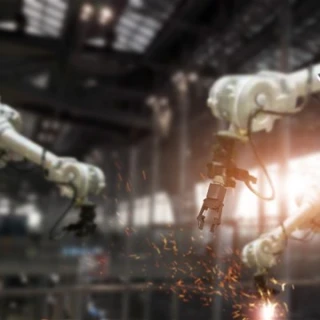Lands of Confusion
The uncertainty of the current political climate through Brexit and the US/Chinese trade wars is generating an environment in which low cost resources, which have helped sustain low inflation and low productivity, are returning home. In the future, the UK is likely to have reduced access to a wider labour pool, so will need to rapidly find alternatives which require the adoption of advanced digital technologies to bridge this resource gap.
Over the longer term, though, the current political uncertainty the UK has the potential to go one of two ways. We could see an exodus of manufacturing operations into Europe, the larger consumer market which also has common legislation and access to a bigger more diverse resource pool. The result in this scenario would be loss of skills, jobs and global influence.
The alternative scenario sees the creation of a global operational centre of excellence in the UK which has a highly skilled digital workforce, allowing for massively-improved productivity gains driven by the use of these technologies and automation. There can be a bright future with strong leadership and a clear executable five-year plan. For this to happen, however, will require the government to rapidly create the right foundation and provide significant investment in these technologies through tax incentives, and supporting digital education.

/Blog_FromUnstructuredContentToSmartContent_720x360-(1).webp?mode=autocrop&w=320&h=240&attachmenthistoryguid=f6ec58b2-1ca4-4498-8361-ddc85173a3c9&v=&focusX=299&focusY=143&c=a6db72dbbdfb693df478f504442f4d013a02d115245b6636c4997b65aadbb7a7)